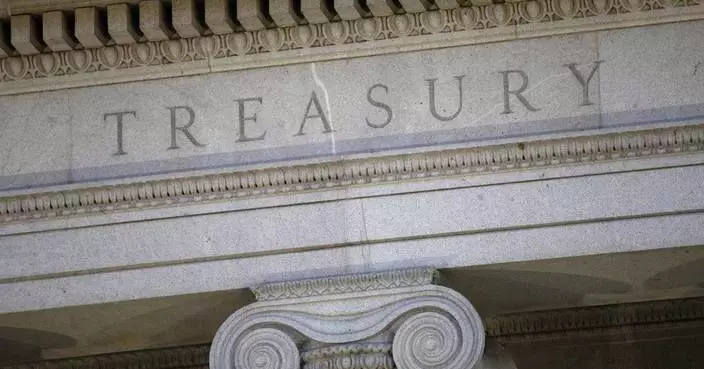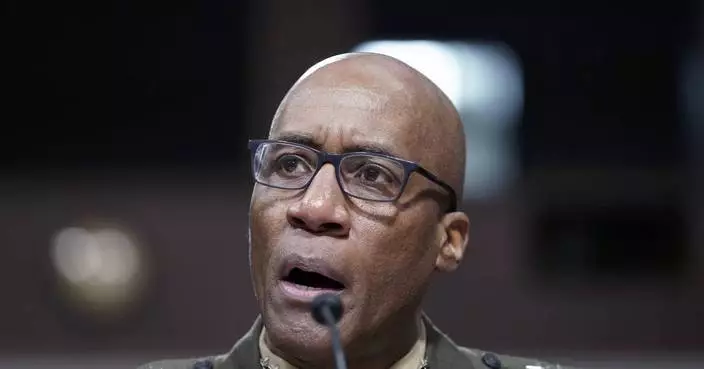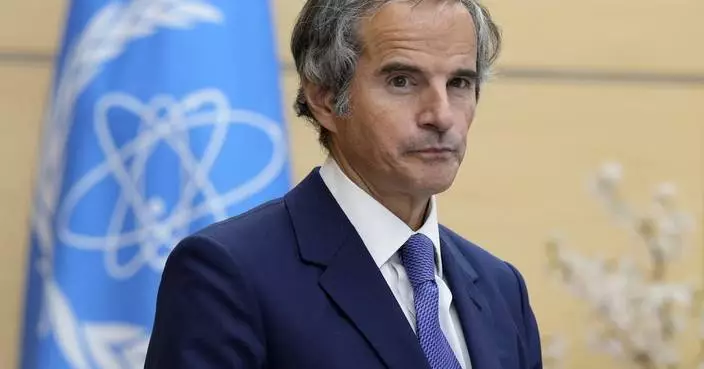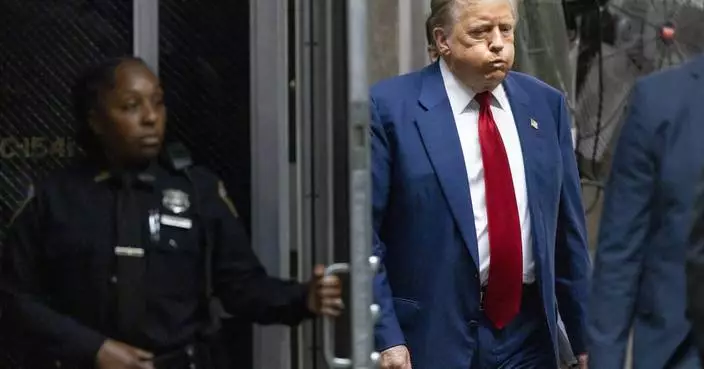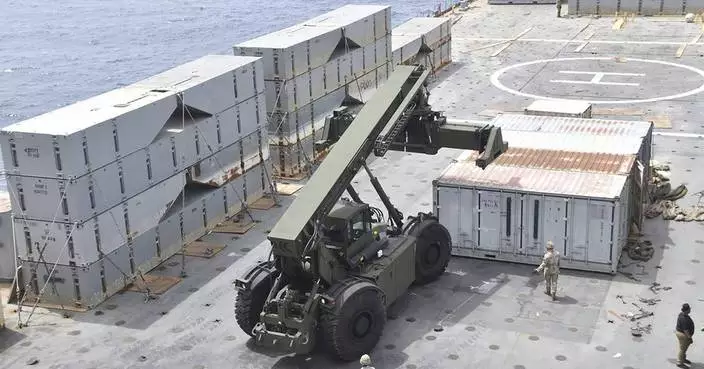A federal agency reversed course Friday on the question of whether President Donald Trump tweeted stale information about Hurricane Dorian potentially hitting Alabama.
On Sunday, Trump warned that Alabama, along with the Carolinas and Georgia, was "most likely to be hit (much) harder than anticipated."
The National Weather Service in Birmingham, Alabama, tweeted in response: "Alabama will NOT see any impacts from #Dorian. We repeat, no impacts from Hurricane #Dorian will be felt across Alabama. The system will remain too far east."
But the president has been adamant throughout the week that he was correct, and the White House has deployed government resources and staff to back him.
The latest defense came out Friday evening, when the National Oceanic and Atmospheric Administration issued a statement from an unidentified spokesman stating that information provided by NOAA and the National Hurricane Center to the president had demonstrated that "tropical-storm-force winds from Hurricane Dorian could impact Alabama." The advisories were dated from last Wednesday, Aug. 28, through Monday, the statement read.
Friday's statement also said the Birmingham NWS tweet Sunday morning "spoke in absolute terms that were inconsistent with probabilities from the best forecast products available at the time."
The statement from NOAA contrasts with comments the agency's spokesman, Chris Vaccaro, made Sunday. "The current forecast path of Dorian does not include Alabama," Vaccaro said at the time.
Brian McNoldy, hurricane researcher at the University of Miami, cited the focus that NOAA placed on "tropical force winds" in its Friday evening statement. He said the first assertion about such winds from Dorian affecting Alabama is fine, but the second assertion "seems to be excessive."
McNoldy said the National Weather Service "had the right tone and message for the time. Alabama, for some time, was on the fringe of probabilities of experiencing tropical storm winds. That is not very threatening."
NOAA's mission is to understand and predict changes in the Earth's environment. It is part of the Commerce Department, overseen by Secretary Wilbur Ross.
Associated Press writers Seth Borenstein and Hope Yen contributed to this report.
UNITED NATIONS (AP) — Russia has circulated a U.N. resolution calling on all countries to take urgent action to prevent putting weapons in outer space “for all time” a week after it vetoed a U.S.-Japan resolution to stop an arms race in space.
The Russian draft resolution, obtained Wednesday by The Associated Press, goes further than the U.S.-Japan proposal, not only calling for efforts to stop weapons from being deployed in outer space but for preventing “the threat or use of force in outer space,” also “for all time.”
It says this should include deploying weapons “from space against Earth, and from Earth against objects in outer space.”
Russia’s U.N. Ambassador Vassily Nebenzia told the Security Council when he vetoed the U,S.-Japan draft that it didn’t go far enough in banning all types of weapons in space.
The vetoed resolution focused solely on weapons of mass destruction including nuclear arms, and made no mention of other weapons in space.
It would have called on all countries not to develop or deploy nuclear arms or other weapons of mass destruction in space, as banned under a 1967 international treaty that the U.S. and Russia ratified, and to agree to the need to verify compliance.
Before the U.S.-Japan resolution was put to a vote on April 24, Russia and China proposed an amendment that would call on all countries, especially those with space capabilities, “to prevent for all time the placement of weapons in outer space, and the threat of use of force in outer spaces.”
The vote was 7 countries in favor, 7 against, and one abstention and the amendment was defeated because it failed to get the minimum 9 “yes” votes in the 15-member Security Council required for adoption.
U.S. Ambassador Linda Thomas-Greenfield told the council after the vote that Russian President Vladimir Putin has said Moscow has no intention of deploying nuclear weapons in space.
“Today’s veto begs the question: Why? Why, if you are following the rules, would you not support a resolution that reaffirms them? What could you possibly be hiding,” she asked. “It’s baffling. And it’s a shame.”
Putin was responding to White House confirmation in February that Russia has obtained a “troubling” anti-satellite weapon capability, although such a weapon is not operational yet.
Russia’s U.N. Ambassador Vassily Nebenzia said after casting the veto that the U.S.-Japan resolution cherry picked weapons of mass destruction.
He said much of the U.S. and Japan’s actions become clear “if we recall that the U.S. and their allies announced some time ago plans to place weapons … in outer space.”
Nebenzia also accused the U.S. of blocking a Russian-Chinese proposal since 2008 for a treaty against putting weapons in outer space.
Thomas-Greenfield accused Russia of undermining global treaties to prevent the spread of nuclear weapons, irresponsibly invoking “dangerous nuclear rhetoric,” walking away from several of its arms control obligations, and refusing to engage “in substantive discussions around arms control or risk reduction.”
Much of the Russian draft resolution is exactly the same as the U.S.-Japan draft, including the language on preventing an arms race in space.
It calls on all countries, especially those with major space capabilities, “to contribute actively to the objective of the peaceful use of outer space and of the prevention of an arms race in outer space.”
Thomas-Greenfield said the world is just beginning to understand “the catastrophic ramifications of a nuclear explosion in space.”

FILE - U.S. Ambassador to United Nations Linda Thomas-Greenfield speaks on Thursday, April 18, 2024, in Tokyo. The U.N. Security Council is set to vote Wednesday, April 24, 2024, on a resolution announced by Thomas-Greenfield, calling on all nations to prevent a dangerous nuclear arms race in outer space. It is likely to be vetoed by Russia. (AP Photo/Eugene Hoshiko, Pool, File)




